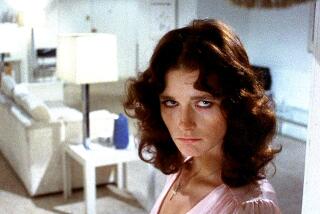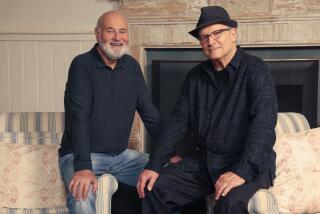A risk-taker’s legacy: Many masterpieces
No other American director made more masterpieces than Robert Altman or took more chances as an artist. Reducing his voluminous filmography to a pint-size roster of greatest hits may be a fool’s errand, but it is also a necessity at a time like this. The best way for me to mark his passing Monday is to offer up just such a list of my personal favorites. To run down these titles is to realize once again the wealth of what he gave us and what a void he leaves behind.
“MASH” (1970) -- This remains the most profanely funny war movie ever made. Although set in Korea, it was really about Vietnam. The giddy grotesquerie of its black comedy was a sane response to the insanities of combat.
“McCabe and Mrs. Miller” (1971) -- One of the most mournfully lyrical films ever made in this country. Warren Beatty’s McCabe is the small-timer who pays for his innocence with his life. Julie Christie, McCabe’s unrequited love, is the bordello madam whose delicate beauty is lit by an opium glow.
“The Long Goodbye” (1973) -- Altman’s rejiggering of the private-eye genre has Elliott Gould as Raymond Chandler’s Philip Marlowe in modern-day, hippie-dippie L.A. Gould’s mumbly Marlowe, with his lanky lope, was light-years away from Humphrey Bogart, which is perhaps why this film initially had such a hostile reception. Seen today, it’s one of his most deliriously entertaining films.
“Thieves Like Us” (1974) -- This Depression-era crime picture, starring Keith Carradine and Shelley Duvall as doomed lovebirds, has the stark lyricism and emotional amplitude of “Let Us Now Praise Famous Men.” One reason you can never call an Altman movie “nostalgic” is because his feeling for the past is so immediate. For Altman, the past -- to paraphrase William Faulkner -- is not even past.
“California Split” (1974) -- Most movies about gambling are big on angst, but this one, starring Elliott Gould and George Segal, is all about the highs. Altman knew something about the mania of gamblers, and he brings you right into the upper altitudes of the obsession where anything seems possible with the roll of the dice or the pick of a card.
“Nashville” (1975) -- The most celebrated of his movies, it is Altman’s raucously comic and despairing take on America and the one that fully utilized his experiments with multi-track dialogue. The babble of voices in this movie is an anthem, a cheering section, an elegy.
“Come Back to the Five and Dime, Jimmy Dean, Jimmy Dean” (1982) -- Altman, the most unstagey of movie directors, surprised everyone in the ‘80s by directing a series of theatrical adaptations. Based on Ed Graczyk’s mood-memory play, this one features astonishing work by Cher, Kathy Bates, Marta Heflin and Karen Black. Along with “Secret Honor” (1984), starring Philip Baker Hall in a monologue as a bughouse Richard Nixon, it’s a model of how a film set in a confined space can be supremely fluid.
“Vincent & Theo” (1990) -- The most uncharacteristic of Altman’s films, this movie about Vincent Van Gogh, starring Tim Roth, has a jagged, ravenous intensity. It’s a tormented movie about a tormented artist. No one who has experienced it would ever make the mistake of categorizing it as a biopic.
“The Player” (1992) -- Altman’s poisoned valentine to Hollywood is deliciously viperish, but at its core it expresses a very real lament for what movies have become. And yet the film itself is a negation of everything it rails against. In the world of bottom-line Hollywood, Altman served up a work of art.
“Gosford Park” (2001) -- Altman was just as comfortable in this “Upstairs/Downstairs” universe as he was in Nashville or sunlit L.A. The English country estate is the playground for some of his wittiest multi-character meanderings and machinations.
Peter Rainer is the film critic for the Christian Science Monitor and DVD critic for Bloomberg News.
More to Read
Only good movies
Get the Indie Focus newsletter, Mark Olsen's weekly guide to the world of cinema.
You may occasionally receive promotional content from the Los Angeles Times.










